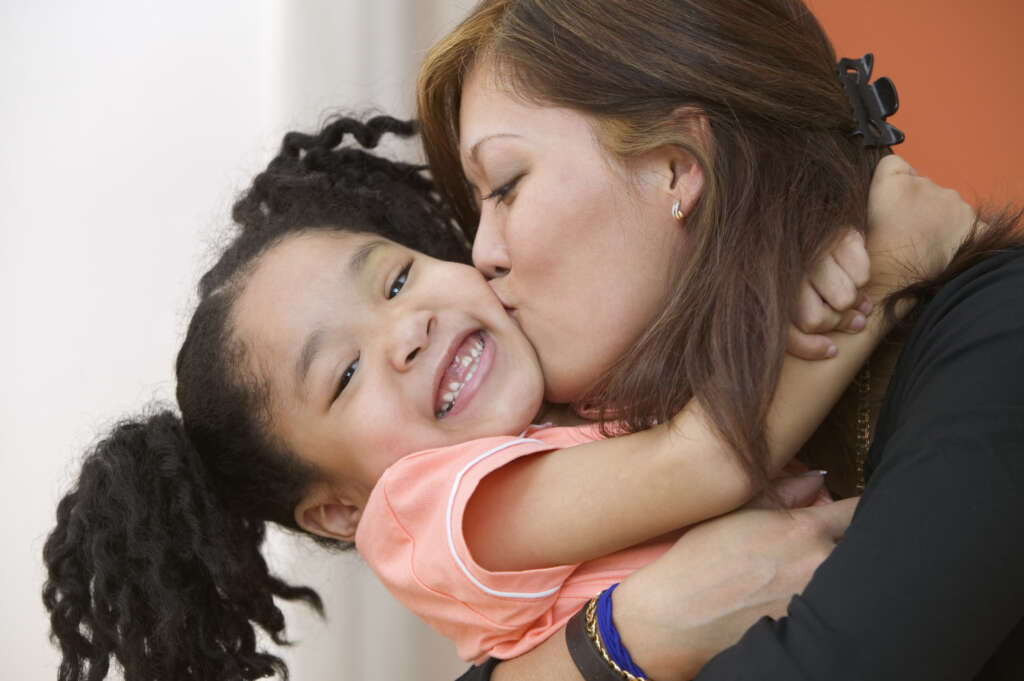The Role Of Repetition In Baby’s Development


Portrait of mother hugging and kissing young daughter
In the enchanting odyssey of a baby’s growth, repetition emerges as a potent force. From their earliest smiles to tentative steps and first words, infants thrive on the familiar rhythms of repetition. This article delves into the profound impact repetition has on a baby’s development, elucidating how understanding this phenomenon empowers caregivers to foster cognitive, emotional, and physical growth. By appreciating the role of repetition, we set the stage for a lifetime of learning and exploration for our little ones.
1. The Power of Repetition
a. Why Babies Love Repetition:
In the vast tapestry of the world, babies find solace in repetition. Amidst a sea of new experiences, repetition offers them a comforting pattern, anchoring them in the familiar and alleviating anxiety.
b. Repetition and Brain Development:
Each encounter with a repeated stimulus fortifies the neural pathways associated with it, akin to tracing over a line to make it bolder. This process fosters cognitive growth, enhancing problem-solving abilities and memory retention.
c. Repetition as Building Blocks:
Before mastering complex skills, babies require a solid foundation. Repetition serves as the cornerstone, laying the initial bricks in the construction of a vast mansion of knowledge.
2. Repetition in Language Development
a. Early Language Skills:
From coos to babbling, infants embark on the journey of language acquisition through repetition. Like an artist dabbing primary colors onto a canvas, they begin to communicate through repetitive sounds.
b. Nursery Rhymes and Songs:
Repeating melodies and rhythms not only entertains babies but also nurtures linguistic skills. It’s akin to practicing dance moves until they become second nature, enhancing fluency and comprehension.
c. Reading Repetition:
Through familiar tales, babies learn to anticipate sequences and recognize patterns, enriching their mental library and instilling a lifelong love for storytelling.
3. Motor Skills and Repetition
a. Crawling and Walking:
Every attempt to crawl or walk, despite stumbles, contributes to the development of gross motor skills. It’s akin to a dancer rehearsing tirelessly until perfecting the steps, refining coordination and balance.
b. Fine Motor Skills:
Actions like grasping or stacking toys refine flexibility and dexterity. This repetitive play is akin to a sculptor chiseling away, refining their masterpiece with each touch.
c. Repetition in Play:
Repeated engagement in games or tasks unveils underlying concepts, akin to uncovering layers of the world’s blueprint with each play session.
4. Emotional Development Through Repetition
a. Attachment and Bonding:
Consistent interactions filled with care strengthen emotional bonds, akin to nourishing a plant to ensure robust growth.
b. Comfort in Familiarity:
Amidst the vastness of new experiences, repetition provides a sense of security and boosts emotional confidence.
c. Routine and Repetition:
Predictable routines offer structure and comfort, providing babies with a coherent storyline to their day.
5. Social Development and Repetition
a. Social Interaction:
Games like peek-a-boo teach babies about interaction norms, refining social skills through repetitive play.
b. Emotional Expression:
Repeated exposure to emotions and expressions enriches babies’ emotional vocabulary, enabling effective communication of feelings.
c. Conflict Resolution:
Navigating minor conflicts equips babies with negotiation skills, molding them into considerate peers.
6. Encouraging and Balancing Repetition
a. Engaging in Repetitive Play:
Introducing toys and activities that promote repetition aids in brain development, allowing babies to explore and master different skills.
b. Balancing Repetition with Variety:
While repetition is comforting, occasional exposure to new stimuli adds vibrancy to experiences, enhancing development without overwhelming.
c. Observing and Responding:
Tuning into a baby’s reactions enables caregivers to tailor activities, ensuring an optimal mix of repetition and novelty for growth.
Repetition emerges as a profound force in a baby’s journey of development, shaping their cognitive, emotional, and social landscapes. By embracing repetition, caregivers pave the way for a rich tapestry of learning and exploration, nurturing happy, healthy, and confident individuals prepared for a lifetime of discovery.



